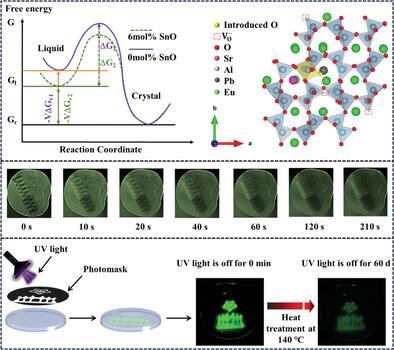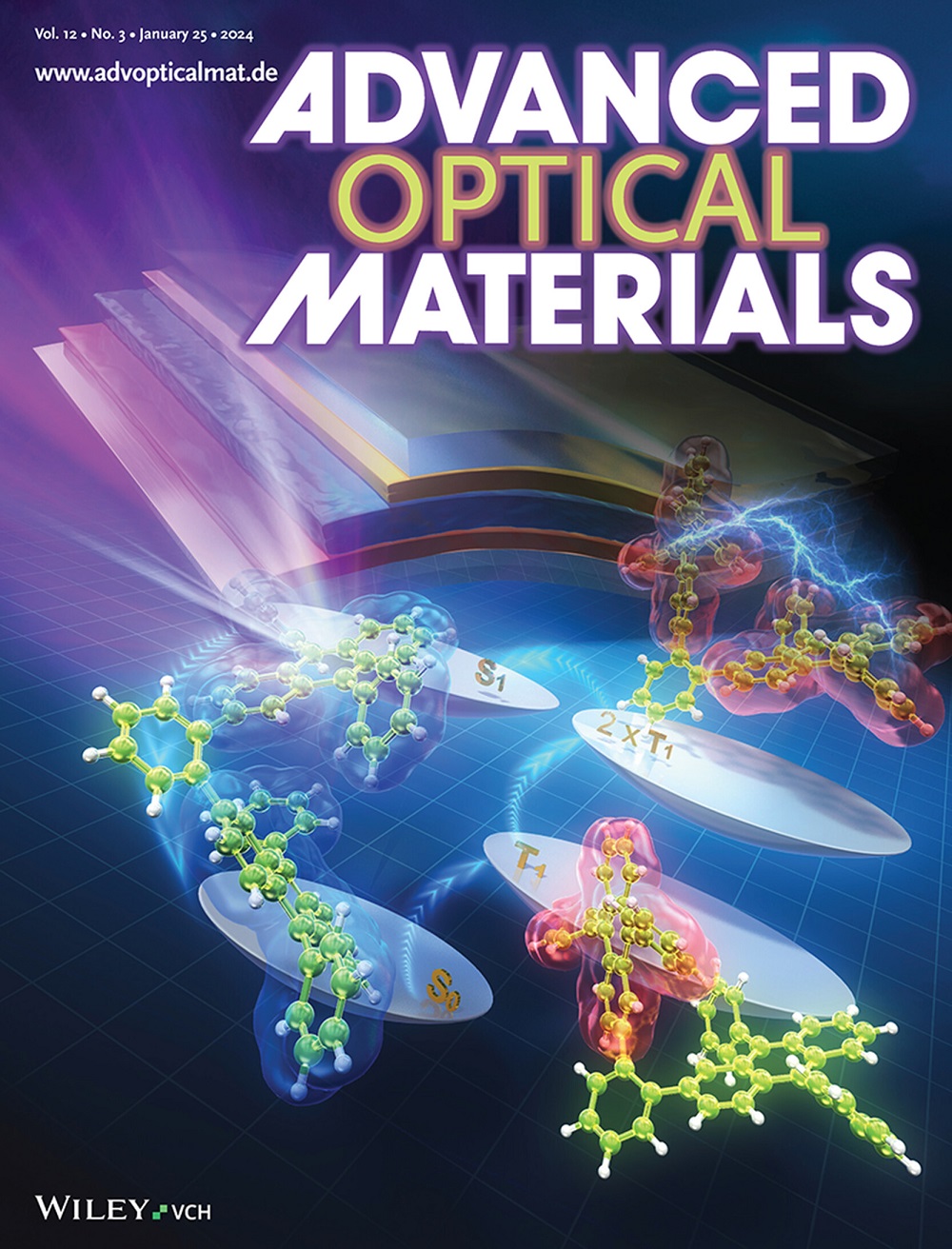Sn2+/Pb2+ Doping‐Induced Highly Transparent Boroaluminate Microcrystalline Glass With Deep Traps for Long‐Term Optical Storage and Time‐Lapse X‐ray Imaging
IF 8
2区 材料科学
Q1 MATERIALS SCIENCE, MULTIDISCIPLINARY
引用次数: 0
Abstract
The development of microcrystalline glass‐ceramics with high transparency and deep trap energy levels is crucial for the cost‐effective and large‐scale production of scintillators and optical data storage applications. In this study, the incorporation of highly electronegative divalent tin (Sn

用于长期光存储和延时 X 射线成像的 Sn2+/Pb2+ 掺杂诱导的具有深阱的高透明硼铝酸盐微晶玻璃
开发具有高透明度和深阱阱能级的微晶玻璃陶瓷,对于经济高效地大规模生产闪烁体和光数据存储应用至关重要。在本研究中,高电负性二价锡(Sn2+)的加入在调节硼酸盐玻璃的网络结构方面发挥了关键作用。因此,成功合成了 SrAl2O4:Eu2+ 微晶玻璃,其透明度高达 80%,结晶度极佳。此外,一系列具有不同价态的非光学活性离子与 Eu2+ 共同掺杂,以微调 SrAl2O4 微晶的阱层。所有样品都保持了较高的结晶度,并表现出良好的透明度。特别是共掺杂 Pb2+ 离子的样品,阱能级提高到 1.28 eV,显著增强了捕获 X 射线和紫外线的能力。密度泛函理论计算显示,这种增强是由于 Pb2+ 离子占据了 SrAl2O4 中的间隙位点而导致严重的晶格畸变。利用 SrAl2O4:Eu2+, Pb2+ 玻璃陶瓷材料,可以实现延迟时间长达 210 秒的 X 射线成像和 60 秒的光学信息存储。这项研究为了解三维玻璃网络结构中持久发光材料的晶体生长和陷阱调制提供了宝贵的见解。
本文章由计算机程序翻译,如有差异,请以英文原文为准。
求助全文
约1分钟内获得全文
求助全文
来源期刊

Advanced Optical Materials
MATERIALS SCIENCE, MULTIDISCIPLINARY-OPTICS
CiteScore
13.70
自引率
6.70%
发文量
883
审稿时长
1.5 months
期刊介绍:
Advanced Optical Materials, part of the esteemed Advanced portfolio, is a unique materials science journal concentrating on all facets of light-matter interactions. For over a decade, it has been the preferred optical materials journal for significant discoveries in photonics, plasmonics, metamaterials, and more. The Advanced portfolio from Wiley is a collection of globally respected, high-impact journals that disseminate the best science from established and emerging researchers, aiding them in fulfilling their mission and amplifying the reach of their scientific discoveries.
 求助内容:
求助内容: 应助结果提醒方式:
应助结果提醒方式:


